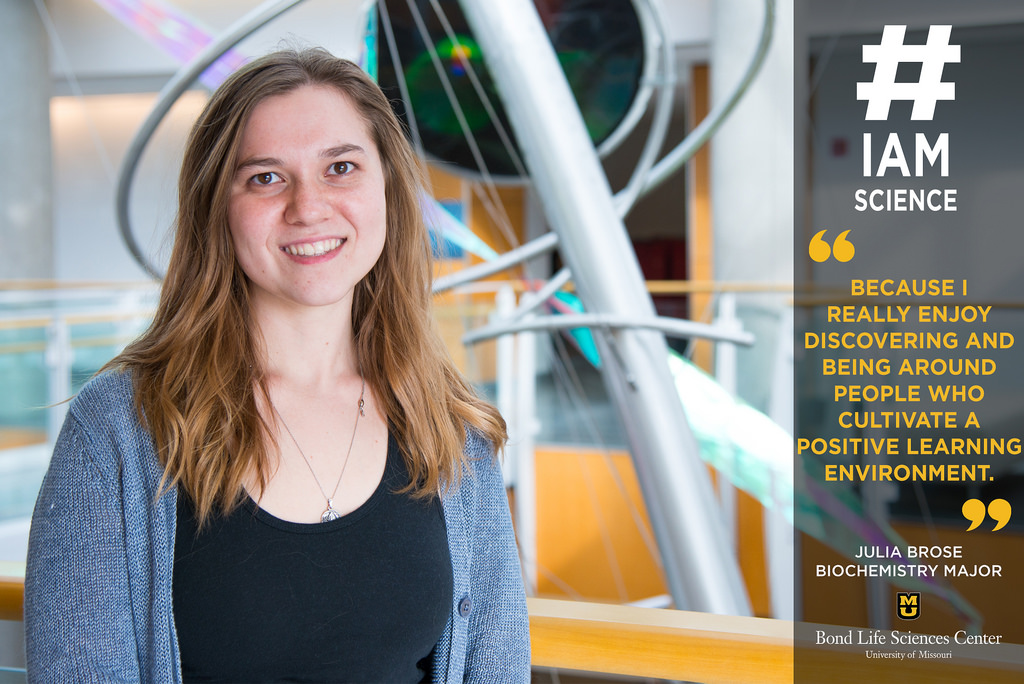Published on

Julia Brose is a senior studying biochemistry at Mizzou. She works in Chris Pires lab in Bond LSC. | Photo by Allison Scott, Bond LSC
“#IAmScience because I really enjoy discovering and being around people who cultivate a positive learning environment.”
As a freshman at Mizzou four years ago, Julia Brose knew she had a love for plants. That, however, competed with her fascination with biochemistry.
Luckily, she found and was selected for FRIPS, Freshman Research in Plant Sciences, which allowed her to do both. The program is made up of 10 freshman each year who gain valuable hands-on research experience with plants.
“I started working in Bond LSC, and that’s really where I found my love for research,” Brose said. “Working with plants allowed me to explore that interest, while still majoring in biochemistry. I have the best of both worlds.”
Her degree in biochemistry coupled with her research experience has given her a number of unique opportunities. One of which was being a Cherng Summer Scholar at Bond LSC last summer where she studied plants and their protein makeup.
“I was looking at amino acids, which are the building blocks of proteins in plants,” Brose said. “Specifically, I was looking for the content in seeds within Brassica, a species that includes cauliflower and kale.”
Another unique opportunity Brose earned was in summer of 2016. She worked at Stanford University as part of a fellowship for the American Society of Plant Biologists.
“I studied novel plant defense compounds —how plants protect themselves,” Brose said. “People can move around and gain protection that way, but plants need different chemicals to protect themselves.”
Her background in biochemistry and her experience with plant research at Bond LSC in Chris Pires’ lab provided her with the ability to analyze the defense structures in a unique way. As a result, she uncovered something that others had either ignored or overlooked.
“I found that the chemicals we see in leaves are in roots, too,” Brose said. “No one else had looked there before, so it was cool to be the first.”
Her work at Stanford led them to send her to a conference in Hawaii earlier this year. While there, Brose was able to present a poster on her findings as well as network with a number of successful scientists in a variety of fields.
As she nears graduation this spring, Brose has begun looking into graduate school options. Those are largely based upon the experience she had in Hawaii.
“I was able to make connections that have influenced my plans for the future as far as where I’m applying to graduate school,” Brose said.
Wherever she ends up, Brose hopes to teach.
“I like mentoring students and being around a learning environment,” Brose said. “That is really fostered in a university.”